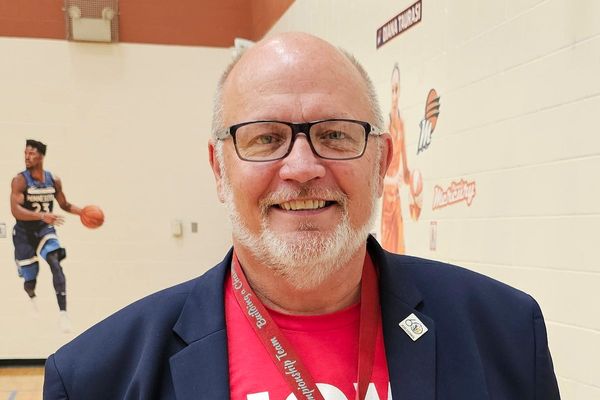Since we first wrote about the non-appearance of mysterious candidates standing for Pauline Hanson's One Nation Party (PHON) in the federal election, the ABC has been flooded with tip-offs from readers, listeners and viewers with more non-sightings.
And not just about One Nation candidates.
So far, we know these "ghost" candidates are contesting seats in NSW, Victoria and the ACT. But some of these candidates live as far afield as Queensland and Tasmania.
They’re totally legal, but some voters think it’s a bit strange. Here’s what you need to know about them.
Please explain, what's a 'ghost' candidate?
A ghost candidate is a term we are using to describe someone who has been nominated as a candidate for a seat but who has not been seen or heard from by the constituents of that electorate.
They do not appear to engage in any of the usual campaigning we associate with aspiring to serve your fellow Australians in the House of Representatives.
But they are real people, just a bit publicity-shy. We've also referred to them as invisible candidates. And ghosts are known for their invisibility, right?
How many 'ghost' candidates is One Nation running?
So far, we've counted about a dozen people who fit this category. The other thing about these ghosts is that many of them live far away from the seats they're supposed to be contesting.
This is probably why they're not being seen on the ground of the electorate they're contesting.
For instance, Vanessa Atkinson is the One Nation candidate for the seat of Mallee in Victoria. But she lives 1,500 kilometres away, near Bundaberg in Queensland.
What's the point of running for a seat if you're not going to campaign?
Good question. We're still getting to the bottom of this.
Part of the reason may be for branding purposes. You want to show that you have nationwide support, that you're not just a fringe party tucked away in one corner of the country.
Part of it may have to do with preference deals: You scratch my back, I'll scratch yours.
And part of it may be about qualifying for electoral funding. Candidates must win at least 4 per cent of the primary vote to get their deposit back and to be eligible for funding from the electoral commission.
Is there anything in it for the candidates?
Funny you should ask. The ghost candidates we have spoken to have not been very forthcoming with details.
Most of them refer us to head office and head office is not returning our emails or calls.
Presumably, they're not stumping up the $2,000 nomination fee.
Maybe it's because they want to serve their party or get selected to a seat closer to home next time?
Are other parties doing this too?
Clive Palmer's United Australia Party is running candidates in all of the 151 electorates. And the Australian Federation Party, another fringe party, is contesting 61 of those 151 seats. But it's not clear yet if there are any out-of-town blow-ins.
Has this happened before?
Certainly not on the industrial scale we are seeing in this campaign.
What does the Australian Electoral Commission (AEC) say about this?
The AEC has told the ABC that there is "no law against candidates living outside of the seat or state/territory they are running in".
Andrew Charlton, for instance, Labor's star candidate for the seat of Parramatta in Sydney's west lives in Bellevue Hill in the city's east.
But, on the whole, parties like to pick locals because they are seen to be more in touch with, you know, local issues. It makes perfect sense.
The AEC spokesperson added: "There is also nothing that requires a candidate to be active in campaigning for election. However, clearly, that would be advantageous if you're genuinely seeking election."







